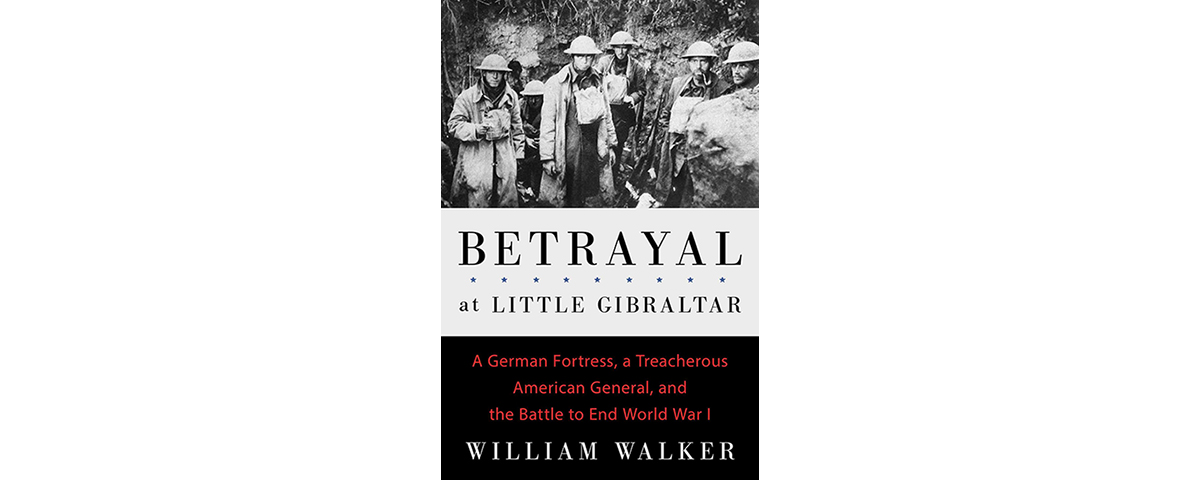Betrayal at Little Gibraltar: A German Fortress, a Treacherous American General and the Battle to End World War I, by William Walker, Scribner, New York, 2016, $28
Carried out between Sept. 26, 1918, and the November 11 Armistice, the Meuse-Argonne Offensive was the last great campaign fought by the American Expeditionary Forces during World War I. Although largely overshadowed in the national consciousness by the battles of the Civil War, World War II and other modern-era conflicts, the Meuse-Argonne was the costliest engagement ever fought by U.S. troops, who incurred a staggering 122,000 casualties.
Betrayal at Little Gibraltar relates one episode in that sanguinary campaign, the unsupported assault by green troops of the 79th Infantry Division on a heavily fortified German position that bore some resemblance to one depicted in the 1957 antiwar film Paths of Glory. The factual assault on Montfaucon (Falcon Hill), nicknamed “Little Gibraltar” by the soldiers of the French army, also included elements of incompetence and betrayal somewhat analogous to the story depicted in the movie.
Walker stumbled on the long-forgotten action in handwritten notes scrawled by a former 79th Division battalion commander in the margins of a wartime history of the U.S. Army. Intrigued by what he read, the career educator dug into the records. He rediscovered a story of petty jealously on the part of a corps commander that literally cost thousands of American soldiers their lives, followed by an apparent cover-up at the highest level of the Army to protect the reputation of a fellow West Point graduate.
Betrayal at Little Gibraltar is an intriguing combination of military history and detective story sure to prove controversial among both historians and military officers. Extensively footnoted and richly illustrated with maps and photographs, the book will undoubtedly become a must-read for those interested in World War I, particularly in the role played by the American Expeditionary Forces.
—Robert Guttman





